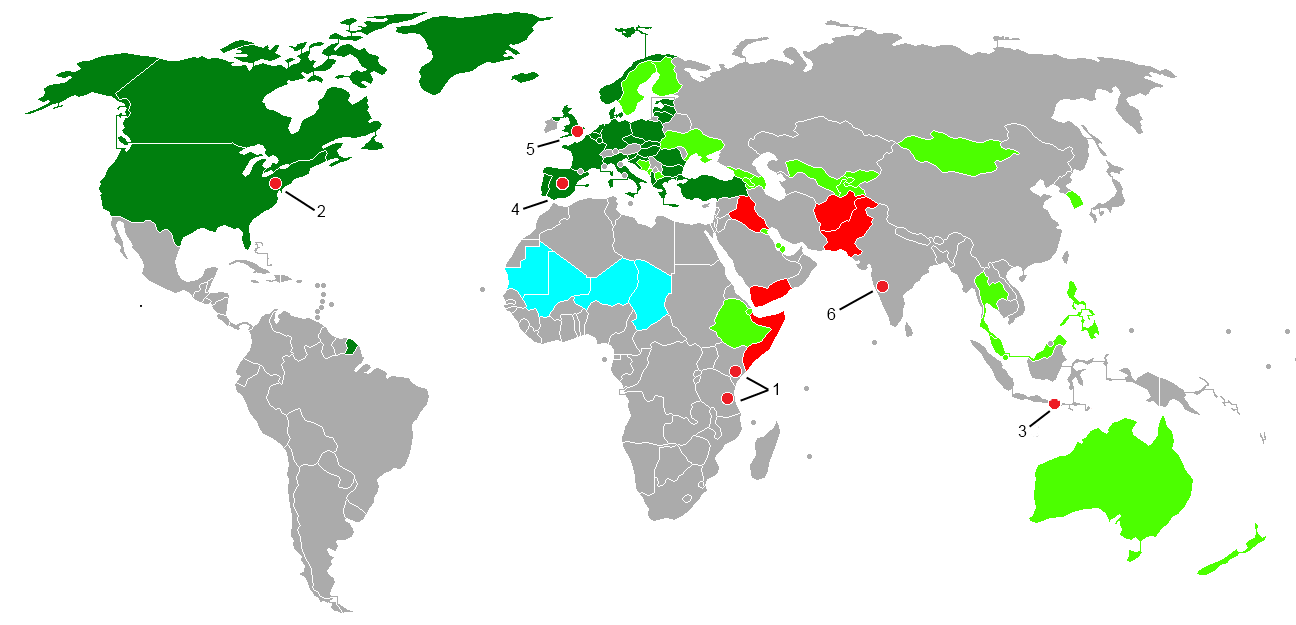by Maryam Noureen Janjua
On November 19, 2024, in response to concerns raised about Pakistan’s security situation in Afghanistan, US State Department spokesperson Mathew Miller issued a statement underlining the United States’ commitment to working with Pakistan to address the persistent terrorist threats emanating from Afghan soil. Miller emphasized the importance of collaborating with Afghan government leaders and civilian institutions to strengthen capacities in detecting, preventing, and responding to militant terrorism. His remarks reinforce the notion that Pakistan’s concerns regarding the ongoing security challenges in the region are not only valid but also shared by the US.
The rise of terrorism in Afghanistan post-Taliban resurgence has posed significant challenges to regional security, with Pakistan bearing the brunt of these threats. Since the resurgence of the Taliban in Afghanistan in 2021, Pakistan has witnessed an alarming spike in cross-border terrorist attacks, resulting in both human and economic losses. Pakistan’s fight against terrorism has been long and costly, but the threat posed by militant groups operating from Afghanistan has escalated in recent years. According to estimates from Pakistan’s Ministry of Interior, over 80% of terrorist attacks in Pakistan between 2021 and 2024 have been traced to militant groups operating from across the Afghan border.
The human cost of these attacks is staggering. In 2023 alone, more than 1000 Pakistanis including security personnel and civilians were killed in various terrorist attacks. This grim statistic highlights the operational capacity of these terrorist groups and the direct threat they pose to Pakistan’s national security. The resurgence of groups such as the Tehrik-i-Taliban Pakistan (TTP), which operates from sanctuaries in Afghanistan, has been a significant contributor to these losses. In 2024, the TTP launched over 150 attacks on Pakistani security forces, underscoring the evolving threat that Pakistan faces from militant factions using Afghanistan as a base.
Beyond the human toll, Pakistan’s economy has also suffered as a result of the persistent terrorist threat. The Pakistan Institute for Peace Studies (PIPS) estimates that the economic cost of terrorism to Pakistan since 2001 exceeds $120 billion. This includes the direct cost of military operations, the reconstruction of infrastructure damaged in terrorist attacks, and the lost economic productivity due to insecurity. This cost has proved to be a double damage pushing Pakistan, simultaneously, into a permanent economic turmoil. As the situation continues to deteriorate along the border, these economic costs are projected to rise further, underscoring the need for international cooperation to combat cross-border terrorism.
The US-Pakistan collaboration against terrorism has seen ups and downs over the years, particularly in light of the rising threat from Afghan-based terrorist groups. However, the recent statement from Mathew Miller highlights the ongoing, shared recognition of the dangers posed by militant groups in Afghanistan. Miller’s statement is an acknowledgment that Pakistan’s security concerns are not only legitimate but also aligned with broader regional security interests. The continued presence of terrorist groups such as the TTP and al-Qaeda, operating with impunity in Afghanistan, remains a pressing concern for both Pakistan and the United States.
One of the key aspects of the Pakistan-US counter-terrorism partnership is the joint effort to enhance border security. The Pakistan-Afghanistan border has long been a flashpoint for terrorist activity. The Taliban’s refusal to address cross-border militancy, despite international pressure, has exacerbated the threat, making it essential for Pakistan and the US to collaborate more closely on securing this critical border. The surge in terrorist incidents near the border areas is a testament to the growing operational capacity of terror groups in Afghanistan. These groups continue to exploit the porous border to launch attacks on Pakistani military personnel, law enforcement, and civilians.
In 2024, there have been 687 terrorism related incidents in Pakistan wherein 506 civilians and 616 security personnel have lost their lives. More alarmingly, at least 40 Pakistani soldiers were abducted by militants from across the border, a disturbing trend that highlights the reach and boldness of terrorist groups in Afghanistan. These kidnappings not only pose a direct security threat but also serve as a tool for recruitment and propaganda for terrorist organizations. The Taliban’s failure to control these groups or even acknowledge the severity of the situation has left Pakistan vulnerable to continued attacks. Despite claims by the Taliban of maintaining control over Afghanistan, the persistent cross-border militancy suggests that their authority is either ineffective or deliberately selective.
The Taliban’s refusal to address the security concerns of neighboring countries, particularly Pakistan, presents a growing risk to regional stability. By harboring terrorist groups and allowing them to operate freely within Afghanistan, the Taliban are creating a volatile environment that not only threatens Pakistan but also risks spilling over into other parts of South Asia. This denial of the growing cross-border threats calls into question the Taliban’s ability or willingness to bring about peace and stability in Afghanistan.
The evolving collaboration between the US and Pakistan to address cross-border terrorism reflects the severity of the threat faced by both countries. The increasing frequency of terrorist attacks, the rise in cross-border violence, and the Taliban’s refusal to address these issues highlight the pressing need for international cooperation to counter terrorism effectively. As Mathew Miller’s statement affirms, Pakistan expects similar collaboration during Trump’s 2.0 presidency. In light of the growing threats from militant groups operating from Afghanistan, this collaboration is more vital than ever. Pakistan’s call for greater international engagement on this issue is not an exaggeration but a realistic response to the dangerous security landscape created by the Taliban’s rule in Afghanistan.

